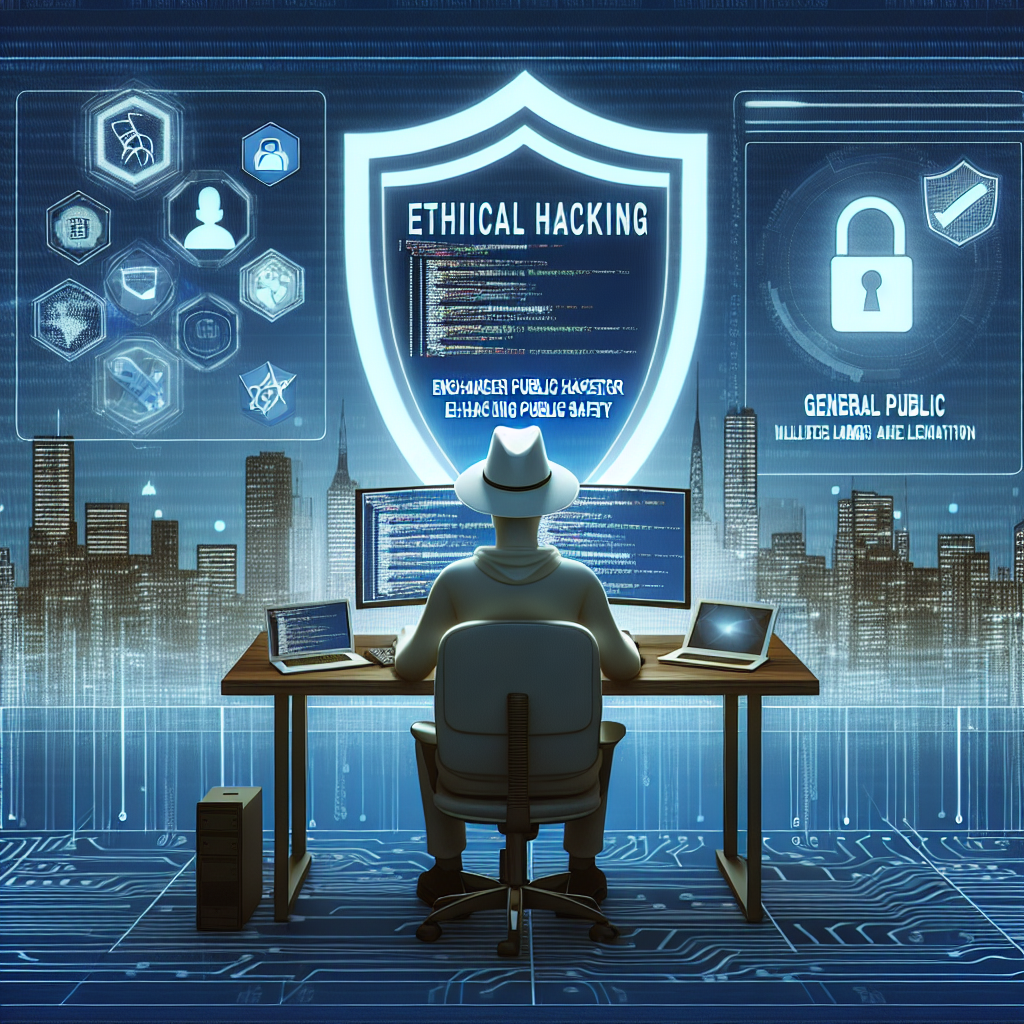Introduction
In an increasingly digital world, public safety extends beyond physical measures to include the protection of information and infrastructure from cyber threats. Ethical hacking plays a pivotal role in this realm by proactively identifying and addressing vulnerabilities before malicious actors can exploit them. This article delves into the significance of ethical hacking in public safety, highlighting its contributions to securing critical systems and ensuring the well-being of society.
Understanding Ethical Hacking
Ethical hacking, also known as penetration testing or white-hat hacking, involves authorized attempts to breach a system’s security. Unlike malicious hackers, ethical hackers work with organizations to find and fix security weaknesses. Their goal is not to steal data but to enhance the system’s defenses, ensuring it can withstand potential attacks.
Key Principles of Ethical Hacking
- Authorization: Ethical hackers operate with explicit permission from the system owners.
- Confidentiality: They maintain the confidentiality of the information they access during testing.
- Integrity: Ethical hackers ensure that their activities do not harm the system’s functionality.
The Role of Ethical Hacking in Public Safety
Public safety encompasses various sectors, including government, healthcare, transportation, and critical infrastructure. Ethical hacking contributes to these areas by:
Protecting Critical Infrastructure
Infrastructure such as power grids, water supply systems, and transportation networks are vital to public safety. Ethical hackers identify vulnerabilities in these systems to prevent disruptions that could have catastrophic consequences. By securing these infrastructures, ethical hacking ensures the continuous and safe operation of essential services.
Enhancing Cybersecurity in Government
Government agencies handle sensitive information related to national security, law enforcement, and citizen data. Ethical hacking helps safeguard this information by uncovering and mitigating potential threats. This proactive approach is crucial in preventing data breaches and maintaining public trust in governmental institutions.
Securing Healthcare Systems
The healthcare sector relies heavily on digital systems for patient records, medical devices, and communication networks. Ethical hacking ensures that these systems are protected against cyberattacks, which can lead to data breaches, compromised patient care, and disruptions in medical services.
Improving Public Safety Applications
Applications used by law enforcement and emergency services must be reliable and secure. Ethical hackers test these applications to ensure they function correctly under various scenarios, enhancing their effectiveness in crisis situations and everyday operations.
Benefits of Ethical Hacking in Public Safety
Proactive Threat Identification
Ethical hacking allows organizations to identify potential security threats before they are exploited by malicious actors. This proactive approach reduces the risk of successful attacks and minimizes the impact on public safety.
Cost-Effective Security Measures
Investing in ethical hacking can save organizations significant costs associated with data breaches, system downtimes, and recovery efforts. By addressing vulnerabilities early, resources can be allocated more efficiently to maintain robust security.
Compliance with Regulations
Many public safety sectors are subject to strict regulatory requirements regarding data protection and cybersecurity. Ethical hacking helps organizations comply with these regulations by ensuring that their systems meet the necessary security standards.
Building Public Trust
Ensuring the security and reliability of public safety systems fosters trust among citizens. Knowing that measures are in place to protect critical services and personal information enhances the confidence of the public in their institutions.
Challenges and Considerations
Skilled Professional Shortage
The demand for skilled ethical hackers often exceeds the supply. Organizations may face challenges in recruiting and retaining qualified professionals to conduct thorough security assessments.
Evolving Threat Landscape
Cyber threats are constantly evolving, requiring ethical hackers to stay updated with the latest techniques and vulnerabilities. Continuous education and training are essential to maintain effective security measures.
Balancing Security and Privacy
While enhancing security, ethical hacking must also respect privacy concerns. Ensuring that testing activities do not inadvertently expose sensitive information is crucial in maintaining ethical standards.
Conclusion
Ethical hacking is a cornerstone of modern public safety, providing essential protections against the ever-present threat of cyberattacks. By proactively identifying and addressing vulnerabilities, ethical hackers contribute significantly to the security and reliability of critical systems that safeguard society. As the digital landscape continues to expand, the role of ethical hacking in public safety will only become more integral, underscoring the need for skilled professionals and robust security strategies.

